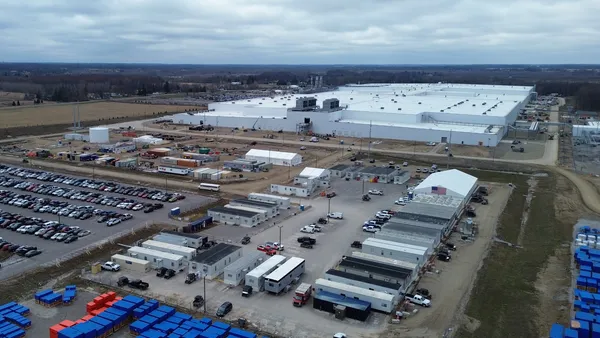Dive Brief:
- BMW has recalled up to 394,029 model year 2006 through 2012 3-Series vehicles that may have a defective driver side airbag installed, according to the National Highway Traffic Safety Administration.
- These vehicles may be equipped with a sport or M-sport style steering wheel with a PSDI-5 airbag inflator containing ammonium nitrate manufactured by OEM supplier Takata Corp. However, the steering wheels in question may have been installed by an owner and not officially sold or approved by BMW as a replacement part.
- The automaker evaluated vehicle production information and dates to determine the number of potentially affected vehicles, which is estimated to be around 1% of the recalled vehicles.
Dive Insight:
Over the past decade, the Takata airbag recall has expanded to include around 67 million vehicles from major automakers, which the NHTSA refers to as the “the largest and most complex safety recall in U.S. history.”
Out of the approximately 67 million recalled vehicles, 50 million airbag inflators have been repaired, while 17 million remain unaddressed, according to the NHTSA.
Long-term exposure to high heat and humidity can cause certain Takata airbags equipped with PSDI-5 inflators containing ammonium nitrate to explode, according to the NHTSA. In the event of an inflator rupture, metal fragments could puncture the airbag when it’s deployed and send shrapnel into the passenger compartment.
BMW has not received any reports of any accidents or injuries related to this issue, according to the NHTSA.
Out of an abundance of caution, BMW decided to issue a safety recall on June 26 to identify, inspect, and, if necessary, replace the driver front airbag inflators in the recalled vehicles free of charge. Owner notification letters are expected to be mailed Aug. 23.
In 2017, after the widespread recall of its airbags was already underway, Takata conducted its own evaluations on PSDI-5 air bag inflators collected from Nissan and Ford Motor Co. vehicles in the field and confirmed that some “demonstrated a pattern of propellant density reduction that could lead to inflator rupture,” according to the NHTSA.
Based upon Takata’s internal investigation and independent test laboratories to date, the potential for airbag ruptures due to defective inflators increases after several years of a vehicle’s exposure to persistent high humidity or high temperatures, according to the NHTSA safety report.
The NHTSA has confirmed that 27 people in the U.S. have been killed and at least 400 injured as a result of Takata airbag inflators exploding.












